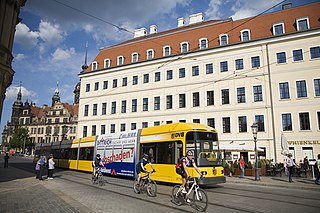
Zero waste, or waste minimization, is a set of principles focused on waste prevention that encourages redesigning resource life cycles so that all products are repurposed and/or reused. The goal of the movement is to avoid sending trash to landfills, incinerators, oceans, or any other part of the environment. Currently 9% of global plastic is recycled. In a zero waste system, all materials are reused until the optimum level of consumption is reached.
The Manitoba Eco-Network is an environmental non-governmental organization (ENGO) and registered charity located in Winnipeg, Manitoba, Canada. It is a regional affiliate of the Canadian Environmental Network, based in Ottawa, Ontario. The Manitoba Eco-Network is a network for approximately 50 ENGOs throughout the province. The stated goal of the Manitoba Eco-Network is to "promote positive environmental action by connecting people and groups in our communities." In practice, it attempts to achieve this goal by providing services to its member groups and the public indirectly through its varied projects.

A sustainable city, eco-city, or green city is a city designed with consideration for social, economic, environmental impact, and resilient habitat for existing populations, without compromising the ability of future generations to experience the same. The UN Sustainable Development Goal 11 defines sustainable cities as those that are dedicated to achieving green sustainability, social sustainability and economic sustainability. They are committed to doing so by enabling opportunities for all through a design focused on inclusivity as well as maintaining a sustainable economic growth. The focus will also includes minimizing required inputs of energy, water, and food, and drastically reducing waste, output of heat, air pollution – CO2, methane, and water pollution. Richard Register, a visual artist, first coined the term ecocity in his 1987 book Ecocity Berkeley: Building Cities for a Healthy Future, where he offers innovative city planning solutions that would work anywhere. Other leading figures who envisioned sustainable cities are architect Paul F Downton, who later founded the company Ecopolis Pty Ltd, as well as authors Timothy Beatley and Steffen Lehmann, who have written extensively on the subject. The field of industrial ecology is sometimes used in planning these cities.

Sustainable Development Strategy for organizations in Canada is about the Government of Canada finding ways to develop social, financial, and environmental resources that meet the needs of the present without compromising the ability of future generations to meet their own needs in Canada. A Sustainable Development Strategy for the organization needs to be developed that establishes the Sustainable Development goals and objectives set by the Auditor General Act of Canada and provides the written policies and procedures to achieve them. Sustainable Development is based on responsible decision-making, which considers not only the economic benefits of development, but also the short-term and long-term, Canadian environment and environmental impacts.

This article outlines the position and trends of recycling in Canada. Since the 1980s, most mid to large municipalities in most provinces have recycling programs, relying on curbside collection with either bins, boxes, or bags. These systems are not standardized, and the specific process differs for each province. Certain provinces have container-deposit systems in place for bottles, cans, and other beverage containers.

A green-collar worker is a worker who is employed in an environmental sector of the economy. Environmental green-collar workers satisfy the demand for green development. Generally, they implement environmentally conscious design, policy, and technology to improve conservation and sustainability. Formal environmental regulations as well as informal social expectations are pushing many firms to seek professionals with expertise with environmental, energy efficiency, and clean renewable energy issues. They often seek to make their output more sustainable, and thus more favorable to public opinion, governmental regulation, and the Earth's ecology.
Manitoba Environment and Climate Change is a department of the Government of Manitoba that is responsible for the management and protection of Manitoba's wildlife, water, species at risk, forestry, and other matters related to environmental stewardship and Manitoba's biodiversity of natural resources.

FortWhyte Alive is a reclaimed wildlife preserve, recreation area, and environmental education centre in southwest Winnipeg, Manitoba, Canada.
The natural environment, commonly referred to simply as the environment, includes all living and non-living things occurring naturally on Earth.
Go Green Wilmette is a non-profit grassroots environmental organization in Wilmette, Illinois. It was founded in 2006 with the goal of establishing an Environmental Commission as part of the village's government. The organization's current president is Beth Drucker. Its mission is "to raise environmental awareness in Wilmette and to inspire people to take action to make a difference." The group has played an activist role in Wilmette on such issues as recycling, leaf blowers, green lawn care, and car idling, and generally acts as a clearinghouse on environmental issues in the Village and neighboring communities.
The California Sustainability Alliance is an organization funded by the California IOUs, to facilitate discussions between various industries on the issues of resource sustainability. The Alliance was set up in 2008 to help California meet its goals in facing Climate change in the State, in relation to energy, resources, and the environment. Efforts are directed at increasing and accelerating sustainable measures and strategies. The Alliance specifically focuses on energy efficiency, climate action, “smart growth” principles, renewable energy development, water-use efficiency, waste management, and transportation management within California.
Four Green Steps is an internet environmental organization based in Montreal, Quebec. The organization was founded in 2008 by Jaye and Bill Yarrow. The business has been active for three years, but the official launch was held in October 2011. The organization consists of four sections: School Program, Community, Marketplace and InfoZone. Four Green Steps contains information on various environmental topics such as green living, sustainable products, and corporate responsibility. The site also provides an environmental curriculum for various schools of different ages.... The organization celebrated 'Unsolicited Acts of Kindness Week' in August 2012, celebrating by donating used office equipment and pledging to plant a tree for anyone who does a good deed during Kindness Week.
A sustainability organization is (1) an organized group of people that aims to advance sustainability and/or (2) those actions of organizing something sustainably. Unlike many business organizations, sustainability organizations are not limited to implementing sustainability strategies which provide them with economic and cultural benefits attained through environmental responsibility. For sustainability organizations, sustainability can also be an end in itself without further justifications.
The San Francisco Mandatory Recycling and Composting Ordinance is a local municipal ordinance requiring all persons located in San Francisco to separate their recyclables, compostables and landfilled trash and to participate in recycling and composting programs. Passed by the San Francisco Board of Supervisors in 2009, it became the first local municipal ordinance in the United States to universally require source separation of all organic material, including food residuals.

"Sustainability," was defined as “development which implies meeting the needs of the present without compromising the ability of future generations to meet their own needs”as defined by the 1983 Brundtland Commission. As sustainability gains support and momentum worldwide, universities across the United States have expanded initiatives towards more sustainable campuses, commitments, academic offerings, and student engagement.
Commuter Challenge is a national, week long event in Canada and is held annually during the Canadian Environment Week. Formatted as a friendly competition between workplaces and Canadian municipalities, the national and host city coordinators announce winners based on the highest percent participation. The event has a strong workplace focus where employers promote the event in-house to support their employees in leaving their cars at home in favour of more sustainable commuter modes including walking, jogging, cycling, in-line skating, public transit, carpooling and remote work.
Statistical data shows that waste management in Winnipeg during the COVID-19 Pandemic.
Green Schools Alliance (GSA) is an effort by primary and secondary schools worldwide to address climate change and conservation challenges by creating a peer-to-peer network of school members committed to reducing their greenhouse gas emissions and accelerating the implementation of sustainable solutions.
Sustainable Materials Management is a systemic approach to using and reusing materials more productively over their entire lifecycles. It represents a change in how a society thinks about the use of natural resources and environmental protection. By looking at a product's entire lifecycle new opportunities can be found to reduce environmental impacts, conserve resources, and reduce costs.

Environment and Ecology Bureau is one of the fifteen policy bureau of the Government of Hong Kong. The agency was established on 1 July 2022. The current Secretary for Environment and Ecology is Tse Chin-wan.







